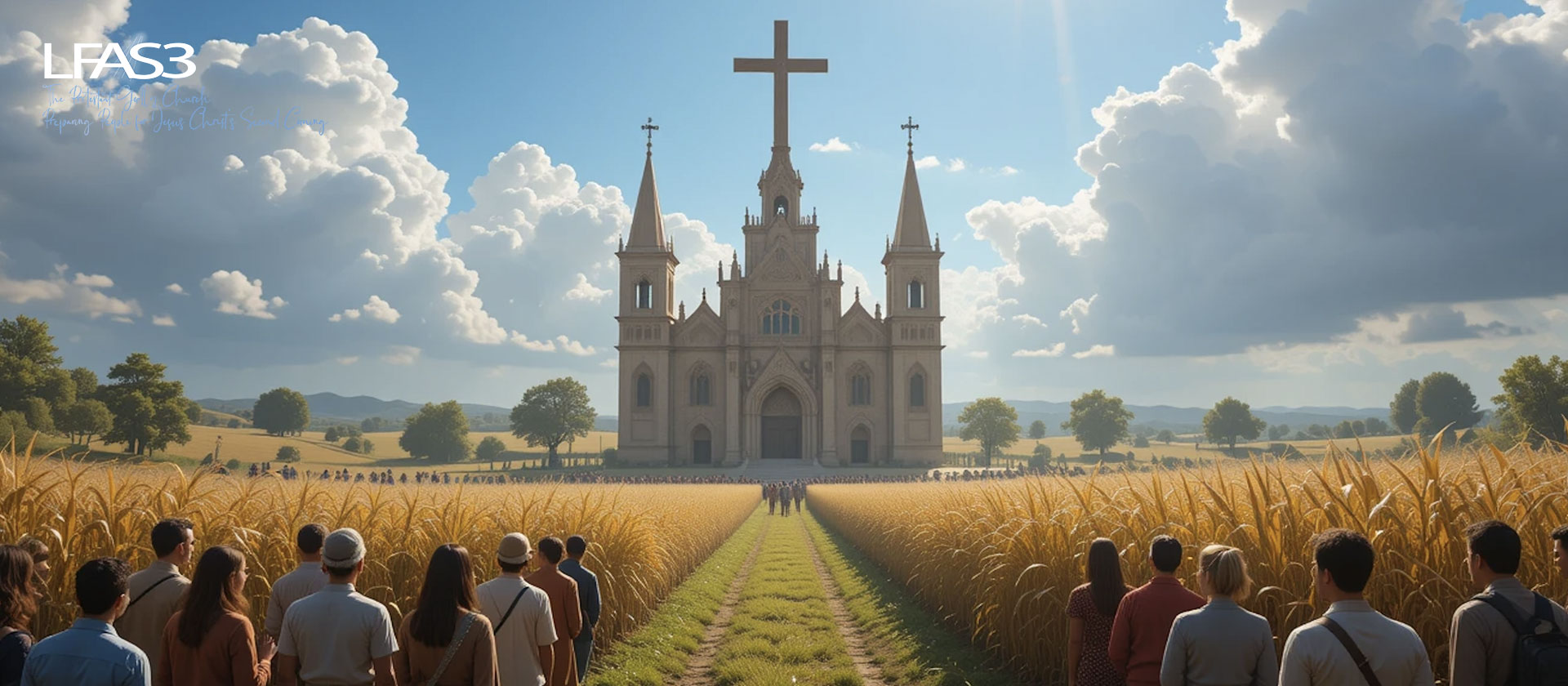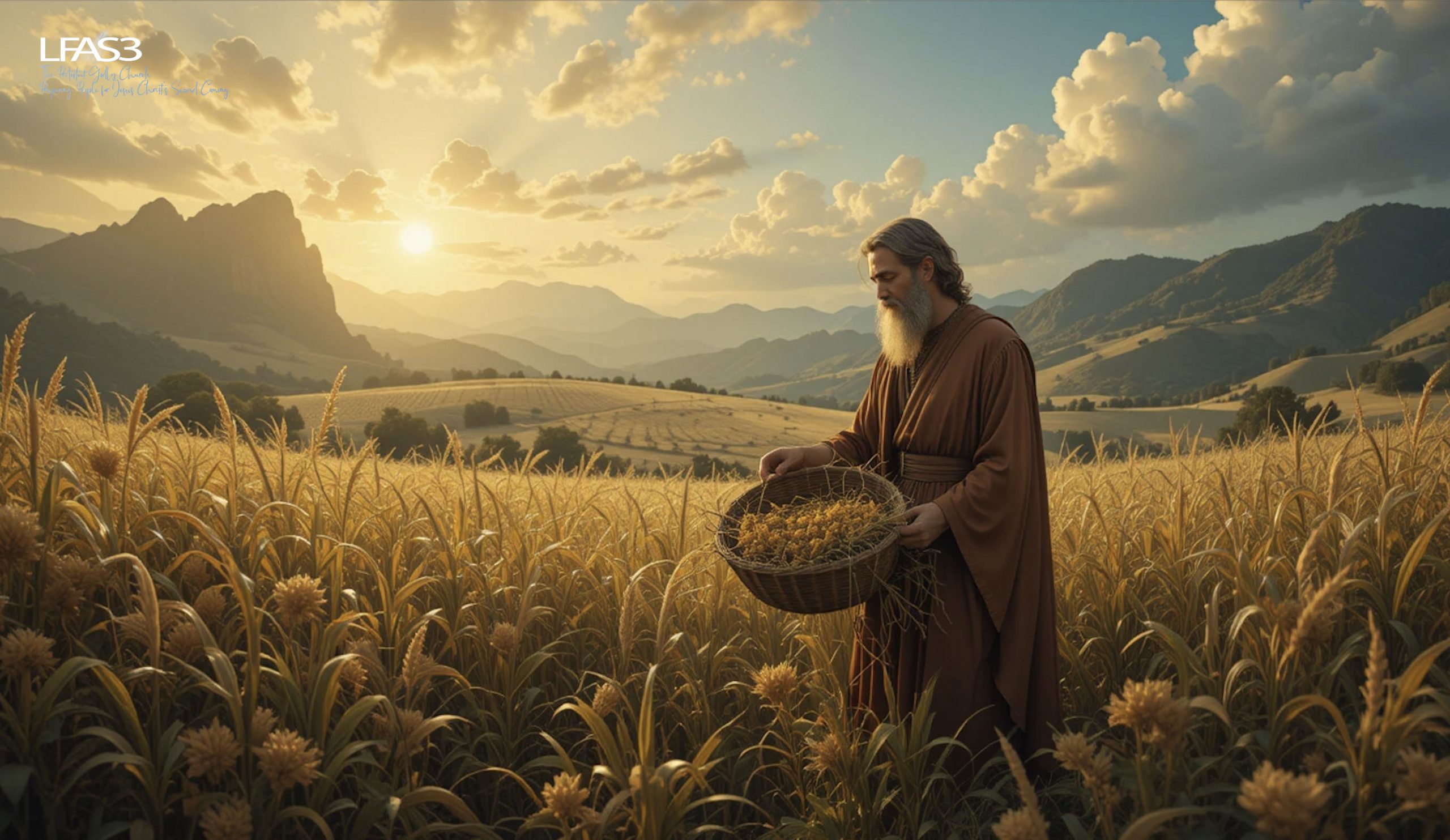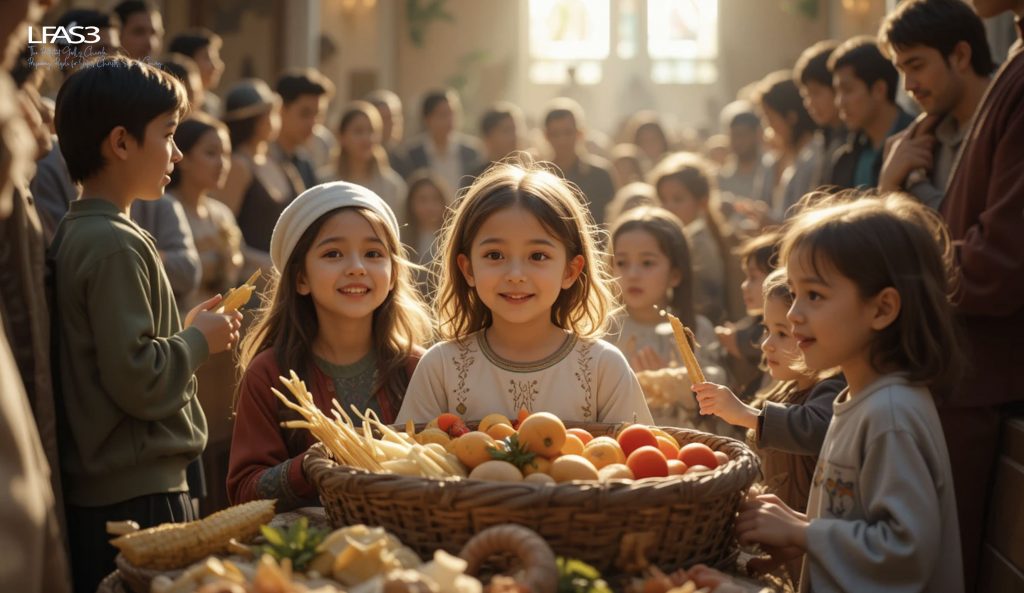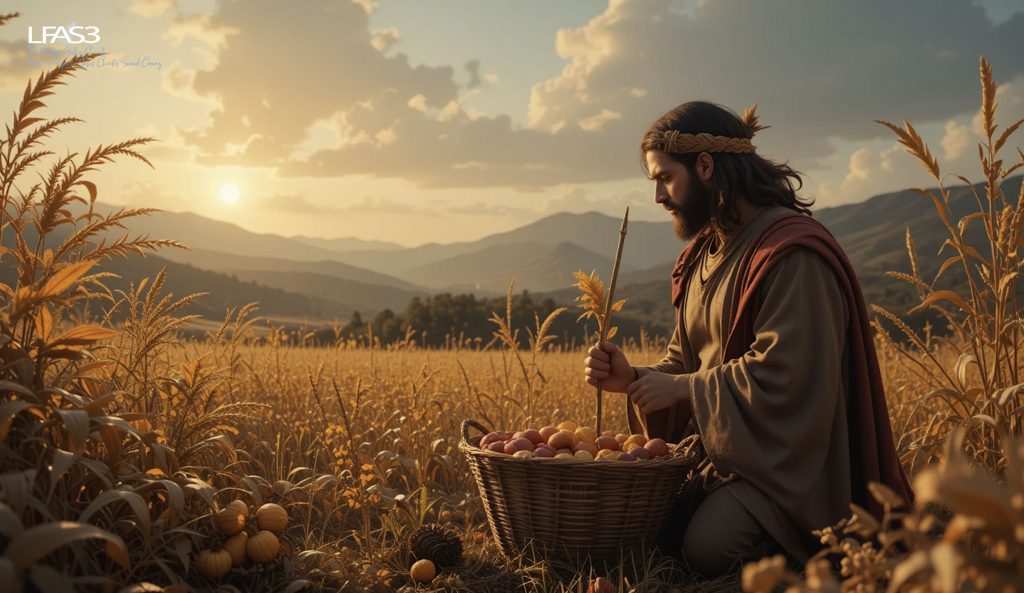Deuteronomy 26
“When you enter the land the Lord Your God is giving you as a special possession and you have conquered it and settled there, 2 put some of the first produce from each crop you harvest into a basket and bring it to the designated place of worship—the place the Lord your God chooses for His name to be honored. 3 Go to the priest in charge at that time and say to him,
“‘With this gift I acknowledge to the Lord your God that I have entered the land He swore to our ancestors He would give us.’ 4 The priest will then take the basket from your hand and set it before the altar of the Lord your God. 5 “You must then say in the presence of the Lord your God, ‘My ancestor Jacob was a wandering Aramean who went to live as a foreigner in Egypt. His family arrived few in number, but in Egypt they became a large and mighty nation. 6 When the Egyptians oppressed and humiliated us by making us their slaves, 7 we cried out to the Lord, the God of our ancestors. He heard our cries and saw our hardship, toil, and oppression. 8 So the Lord brought us out of Egypt with a strong hand and powerful arm, with overwhelming terror, and with miraculous signs and wonders. 9 He brought us to this place and gave us this land flowing with milk and honey! 10 And now, O Lord, I have brought you the first portion of the harvest you have given me from the ground.’ Then place the produce before the Lord your God, and bow to the ground in worship before Him.
11 Afterward you may go and celebrate because of all the good things the Lord your God has given to you and your household. Remember to include the Levites and the foreigners living among you in the celebration. 12 “Every third year you must offer a special tithe of your crops. In this year of the special tithe you must give your tithes to the Levites, foreigners, orphans, and widows, so that they will have enough to eat in your towns. 13 Then you must declare in the presence of the Lord your God, ‘I have taken the sacred gift from my house and have given it to the Levites, foreigners, orphans, and widows, just as you commanded me. I have not violated or forgotten any of your commands. 14 I have not eaten any of it while in mourning; I have not handled it while I was ceremonially unclean; and I have not offered any of it to the dead. I have obeyed the Lord my God and have done everything you commanded me. 15 Now look down from your holy dwelling place in heaven and bless your people Israel and the land you swore to our ancestors to give us—a land flowing with milk and honey.’”
This Is Why We Must Celebrate the Harvest
A Sermon by Elise Beatrice - 19 May 2025
In this Sermon, Elise Beatrice opens the Word of God and reveals, by the Holy Spirit, a depth that cannot be found in surface-level teaching. What many dismiss as “tradition,” the Lord unfolds as His eternal truth, carrying meaning for His people even today.
This is not the empty religion of the world, nor the light sermons of the mainstream. Here, the Scriptures are unveiled with power and reverence, showing how God’s commands and promises are alive in Christ for all who truly belong to Him.
Only those led by the Spirit will recognise the treasure in this teaching. Come with a humble heart, and discover why the Harvest still matters to God’s children today.
The Word of God is not history to be studied from a distance, but living truth that speaks to His people today. In this teaching, Elise Beatrice opens Deuteronomy 26 and, by the leading of the Holy Spirit, reveals how the commands of the Lord still carry meaning, life, and calling for His children now.
Many have set aside these passages as ancient rituals, but to those who belong to Christ, they shine with prophetic depth—truth that points us back to the Father’s heart, His Son Jesus Christ, and the way of holiness He desires. This message is not like the hollow sermons of the age but bread for the hungry, light for the faithful, and gold that only the Spirit of God allows His children to see.
Come and listen with reverence. Let the Lord Himself show you why His harvest is worth celebrating—not as mere tradition, but as a testimony of His salvation, His promises, and His eternal rest in Christ.







